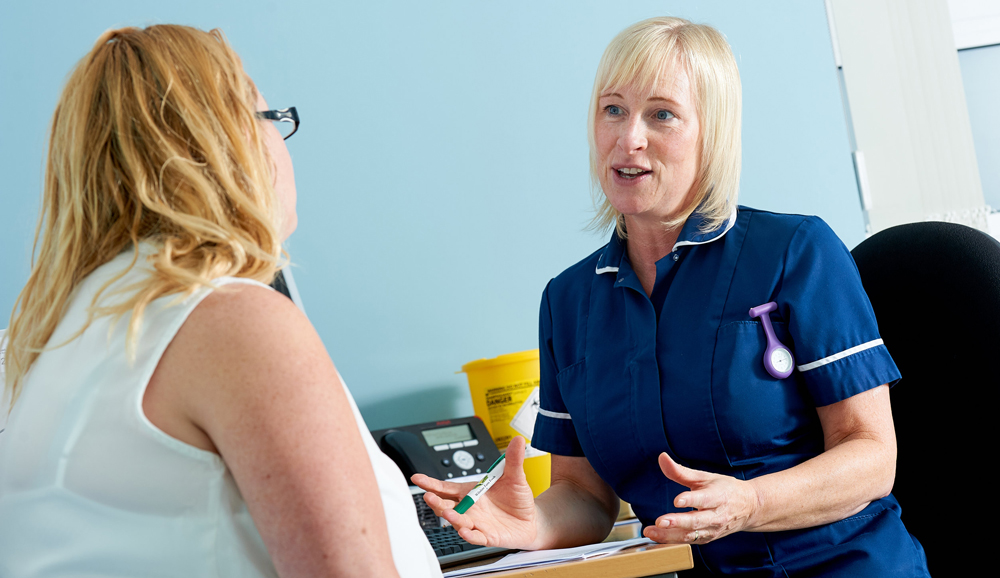Improving health outcomes for respiratory patients while reducing carbon emissions

The issue
Inhalers are a key treatment for respiratory conditions, with approximately 60 million dispensed in England every year. However, inhalers are not always used in an optimal way, which can lead to poor disease control and avoidable deaths.
Inhaler emissions account for approximately 3% of the NHS carbon footprint. The propellant used in metered dose inhalers is responsible for most of these emissions. Alternative options with a significantly lower carbon footprint exist, such as dry powder inhalers.
The UK has a higher metered dose inhalers prescribing rate compared with other European countries. These countries have demonstrated that safe and effective care can still be delivered using other inhaler devices.
Supporting patients over the age of 12 to consider using lower carbon inhalers, where clinically appropriate, creates an opportunity to improve patient outcomes while reducing harmful carbon emissions.
The move also supports improved patient choice. A study from Asthma+Lung UK (ALUK) indicated that most patients would like the environmental impact of inhalers to be a consideration in treatment choice.
Wyre Forest Health Partnership (WFHP) was formed from a merger of 5 GP practices and now comprises of 6 sites across Worcestershire with over 50 doctors, 200+ staff, and more than 73,000 patients. WFHP identified that, in line with the UK, they too had high prescribing rates for metered dose inhalers, and decided to act – to improve the health of their respiratory patients, while reducing their environmental impact.
The solution
Following the approval of the WFHP board to proceed, a centrally coordinated team got to work to develop, implement, and iterate a solution.
First off, sustainability was embedded into the culture of the organisation. Green facilitators were appointed at each site, drawn from a mix of clinical and non-clinical staff – pending interest and availability. These green facilitators underwent carbon literacy training and began to facilitate action across the organisation, keeping in touch and sharing learnings through an instant messaging system.
Next, a review of the asthma guidelines took place, in collaboration with CCG pharmacists and consultants in secondary care. Approval was secured to remove two of the most carbon-intensive inhalers from the formulary. It was also agreed to include dry powder inhalers over metered dose inhalers as the default option for adults and children over 12 years old, when clinically appropriate [publication of these revised guidelines is awaited].
A protocol was developed for a systematic approach to asthma reviews, incorporating a discussion of the environmental impact of inhalers and assessment of the safety of switching device where appropriate and in-line with patient preference. In-house training on this approach was delivered for respiratory nurses at all sites by the organisation’s clinical lead for sustainability. Staff reported feeling more confident to incorporate sustainability into their practice when seeing asthma patients following this training.
The IT team assisted too, by developing a revised asthma template to support reviews, which was initially piloted with clinicians, then rolled out to all sites. Pop-ups were written into our electronic records system to highlight when metered dose inhalers were being prescribed for the first time and suggested clinically appropriate low carbon alternatives for consideration.
The opportunity to improve respiratory care was central to the overall solution. Where face to face patient consultations took place, new inhaler technique was demonstrated in the consultation. Where remote consulting took place, patients were signposted to Asthma+Lung UK videos and to the community pharmacy New Medicines Service, enabling inhaler technique demonstration remotely. Advice was also provided about the importance of disposing of inhalers appropriately by returning them to pharmacies for incineration.
Lastly, the WFHP decided to declare a climate emergency ahead of COP26, outlining proposed targets and how the organisation would achieve them. This final step helped the team to raise awareness about the need for action, encourage others to follow, and embed sustainability as “business as usual” within the organisation and across the region.
The impact
Patients have responded positively to discussions about environmental impact and many have been eager to change to a less carbon-intensive device, according to feedback by clinicians at WFHP.
Measurable changes are also evident, in particular at Kidderminster Medical Centre, where work began earlier than at other sites. The proportion of metered dose inhalers out of all non-salbutamol inhaler prescriptions fell significantly at this site, from 64% in May 2021 to 53% in October 2021. The number of patients with a particularly high carbon metered dose inhaler on repeat prescription fell from 86 to 70 between July 2021 and November 2021. Open prescribing indicators are monitored monthly and are reviewed with green facilitators for each site to evaluate where progress has been made, and where there is room for further action.
While clinicians were hugely supportive of a more sustainable approach, this solution required a significant change in prescribing culture among clinicians – not all of whom are very fluent at broader respiratory prescribing. Efforts were made to make low carbon prescribing choices as easy to select as possible, but switching guidance tailored to GP practice settings is in development to provide further support.
Over to you!
